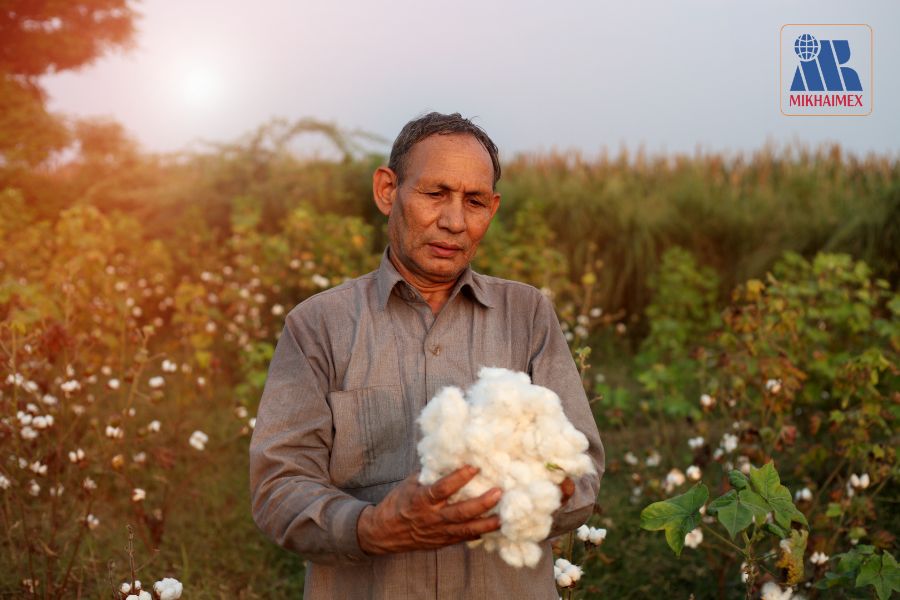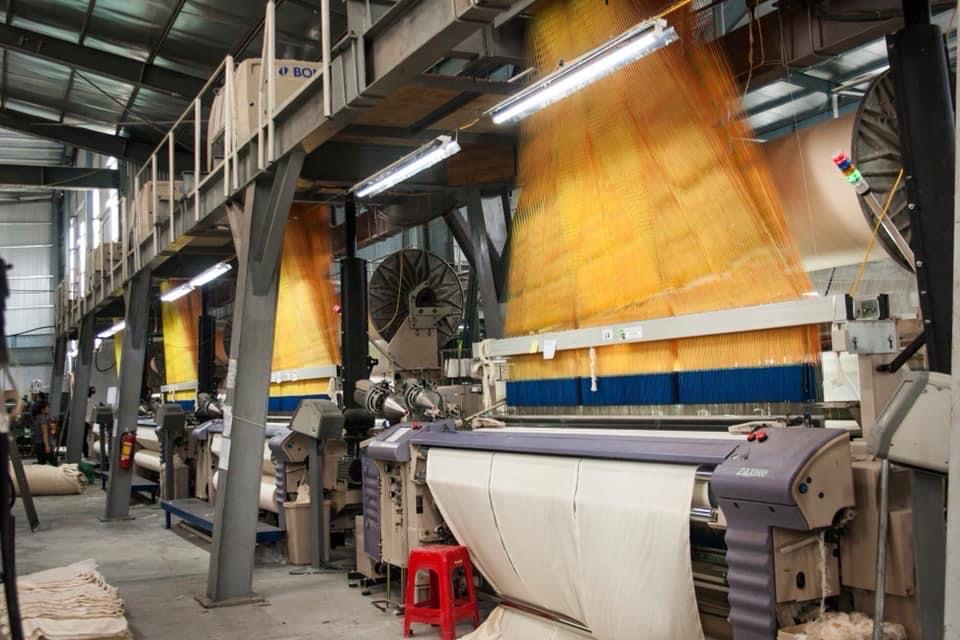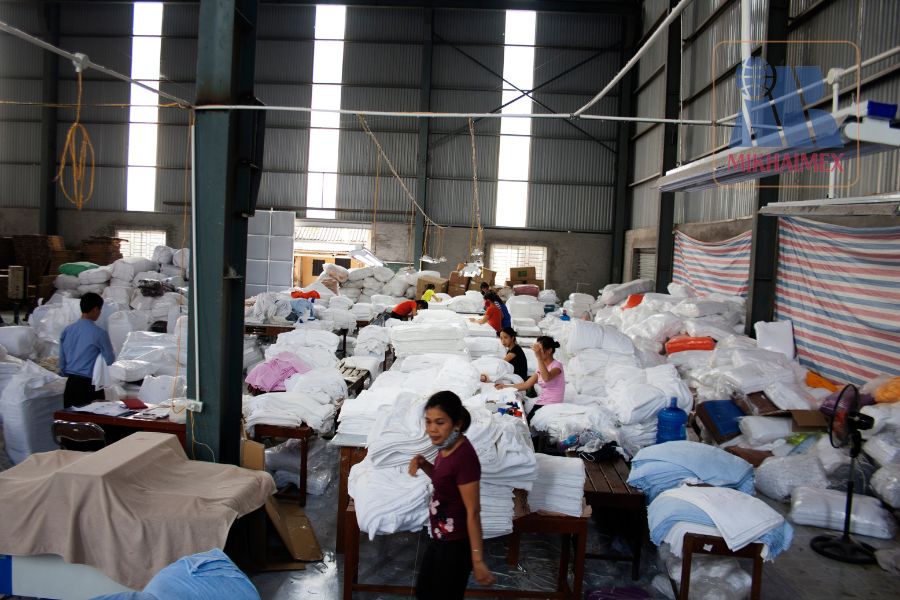
The cotton towel manufacturing industry in Vietnam has become an integral part of the textile sector, making significant contributions to the national economy. With increasing domestic and international demand, this industry is undergoing substantial changes, from leveraging natural advantages to facing global competition challenges. This article will provide an in-depth analysis of the current status, potential, challenges, and future prospects of Vietnam’s cotton towel manufacturing industry.
1. Current Status of the Cotton Towel Manufacturing Industry in Vietnam
1.1. Production Scale
The cotton towel manufacturing industry in Vietnam is on a growth trajectory, with an increasing number of enterprises and production scale. Provinces like Nam Dinh, Thai Binh, and Hanoi have emerged as major production centers, supplying both domestic and international markets. Vietnamese cotton towels are exported to key markets such as the USA, EU, and Japan, thanks to improved product quality and compliance with international standards.
1.2. Industry Structure
The cotton towel manufacturing industry in Vietnam is primarily divided into three main segments: household towels, industrial towels (used in hotels and restaurants), and export towels. Each segment has distinct product characteristics and quality requirements, necessitating investments in appropriate technology and production processes.

2. Potential of the Cotton Towel Manufacturing Industry in Vietnam
2.1. Abundant Raw Material Resources
Vietnam’s favorable natural conditions for cotton cultivation provide abundant raw materials for the cotton towel manufacturing industry. This not only saves import costs but also ensures production stability, particularly when there is a surge in demand for cotton towels.
2.2. Expanding Consumer Market
With a large population and increasing income levels, domestic demand for textile products, including cotton towels, is continuously expanding. Additionally, international markets such as the USA, EU, Japan, and South Korea are increasingly importing cotton towels from Vietnam, thanks to competitive pricing and quality advantages.
2.3. Government Support Policies
The Vietnamese government has implemented various support policies for the textile industry, including the cotton towel manufacturing sector. These include export tax reductions, preferential loans, and high-quality workforce training. These policies provide enterprises with the resources needed to invest in expanding production and improving product quality.

3. Challenges Facing the Cotton Towel Manufacturing Industry in Vietnam
3.1. International Competition
Vietnam faces intense competition from major cotton towel-producing countries like China, India, and Turkey. These countries benefit from large-scale production, advanced technology, and lower production costs, compelling Vietnam to continuously innovate to maintain its competitive edge.
3.2. Enhancing Production Technology
Despite an abundant labor force, Vietnam’s cotton towel manufacturing industry still heavily relies on manual labor and outdated technology. Investment in new technology and modernization of production processes is necessary to improve productivity, product quality, and reduce production costs.
3.3. Meeting Quality and Sustainability Standards
Consumers are increasingly concerned about environmentally friendly products that meet international quality standards. Meeting these demands poses a significant challenge for Vietnamese cotton towel manufacturers, requiring investment in research and development and a shift towards sustainable production processes.
4. Prospects of the Cotton Towel Manufacturing Industry in Vietnam
4.1. Developing Export Markets
Vietnam’s cotton towel manufacturing industry has significant potential in developing export markets, particularly due to free trade agreements (FTAs) like CPTPP and EVFTA. These agreements open up opportunities for manufacturers to access international markets with attractive tax incentives, enhancing global competitiveness.
4.2. Investing in Advanced Technology
Investing in new technology and modernizing production processes will help increase productivity, improve product quality, and reduce production costs. This also helps manufacturers meet the stringent demands of international markets and add value to Vietnamese products.
4.3. Developing Environmentally Friendly Products
There is a growing demand for green and sustainable products. Vietnamese cotton towel manufacturers can leverage this trend by developing products made from natural materials, free from harmful chemicals, and implementing eco-friendly production processes.
5. The Role of Minh Khai Textile Import-Export Joint Stock Company
Minh Khai Textile Import-Export Joint Stock Company is one of the leading enterprises in Vietnam’s cotton towel manufacturing industry. With a commitment to providing high-quality, environmentally friendly products at competitive prices, Minh Khai has been actively contributing to the development of Vietnam’s textile industry.
5.1. Innovating Production Technology
Minh Khai continuously invests in modern technology, improving production processes to enhance product quality and minimize environmental impact. The company applies international quality management standards, ensuring that each cotton towel product meets the highest standards of durability, softness, and safety for consumers.
5.2. Expanding Export Markets
With a sustainable development strategy and market expansion, Minh Khai has established a wide customer network worldwide. The company’s cotton towel products are exported to major markets, enhancing the position of Vietnamese products on the global stage.
5.3. Commitment to Community and Environment
Minh Khai is committed to developing environmentally friendly products, using natural materials and implementing sustainable production processes. The company also focuses on community contributions through social, educational, and environmental protection activities.
Conclusion
Vietnam’s cotton towel manufacturing industry faces many opportunities and challenges. With advantages in raw materials, labor, and geographical location, along with investment in technology and sustainable development, Vietnam’s cotton towel manufacturing industry has significant potential for strong growth in the future. Minh Khai Textile Import-Export Joint Stock Company, with its commitment to providing high-quality, environmentally friendly cotton towel products at competitive prices, is ready to meet the diverse needs of customers and contribute to the development of Vietnam’s textile industry.


